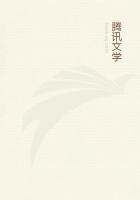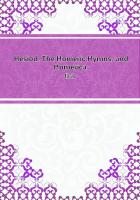THUS the view that Balder's life was in the mistletoe is entirely in harmony with primitive modes of thought. It may indeed sound like a contradiction that, if his life was in the mistletoe, he should nevertheless have been killed by a blow from the plant. But when a person's life is conceived as embodied in a particular object, with the existence of which his own existence is inseparably bound up, and the destruction of which involves his own, the object in question may be regarded and spoken of indifferently as his life or his death, as happens in the fairy tales. Hence if a man's death is in an object, it is perfectly natural that he should be killed by a blow from it. In the fairy tales Koshchei the Deathless is killed by a blow from the egg or the stone in which his life or death is secreted; the ogres burst when a certain grain of sanddoubtless containing their life or deathis carried over their heads; the magician dies when the stone in which his life or death is contained is put under his pillow; and the Tartar hero is warned that he may be killed by the golden arrow or golden sword in which his soul has been stowed away.
The idea that the life of the oak was in the mistletoe was probably suggested, as I have said, by the observation that in winter the mistletoe growing on the oak remains green while the oak itself is leafless. But the position of the plantgrowing not from the ground but from the trunk or branches of the treemight confirm this idea. Primitive man might think that, like himself, the oak-spirit had sought to deposit his life in some safe place, and for this purpose had pitched on the mistletoe, which, being in a sense neither on earth nor in heaven, might be supposed to be fairly out of harm's way. In a former chapter we saw that primitive man seeks to preserve the life of his human divinities by keeping them poised between earth and heaven, as the place where they are least likely to be assailed by the dangers that encompass the life of man on earth. We can therefore understand why it has been a rule both of ancient and of modern folk-medicine that the mistletoe should not be allowed to touch the ground; were it to touch the ground, its healing virtue would be gone. This may be a survival of the old superstition that the plant in which the life of the sacred tree was concentrated should not be exposed to the risk incurred by contact with the earth. In an Indian legend, which offers a parallel to the Balder myth, Indra swore to the demon Namuci that he would slay him neither by day nor by night, neither with staff nor with bow, neither with the palm of the hand nor with the fist, neither with the wet nor with the dry. But he killed him in the morning twilight by sprinkling over him the foam of the sea. The foam of the sea is just such an object as a savage might choose to put his life in, because it occupies that sort of intermediate or nondescript position between earth and sky or sea and sky in which primitive man sees safety. It is therefore not surprising that the foam of the river should be the totem of a clan in India.
Again, the view that the mistletoe owes its mystic character partly to its not growing on the ground is confirmed by a parallel superstition about the mountain-ash or rowan-tree. In Jutland a rowan that is found growing out of the top of another tree is esteemed exceedingly effective against witchcraft: since it does not grow on the ground witches have no power over it; if it is to have its full effect it must be cut on Ascension Day. Hence it is placed over doors to prevent the ingress of witches. In Sweden and Norway, also, magical properties are ascribed to a flying-rowan (fl?gr?nn), that is to a rowan which is found growing not in the ordinary fashion on the ground but on another tree, or on a roof, or in a cleft of the rock, where it has sprouted from seed scattered by birds. They say that a man who is out in the dark should have a bit of flying-rowan with him to chew; else he runs a risk of being bewitched and of being unable to stir from the spot. Just as in Scandinavia the parasitic rowan is deemed a countercharm to sorcery, so in Germany the parasitic mistletoe is still commonly considered a protection against witch-craft, and in Sweden, as we saw, the mistletoe which is gathered on Midsummer Eve is attached to the ceiling of the house, the horse's stall or the cow's crib, in the belief that this renders the Troll powerless to injure man or beast.















